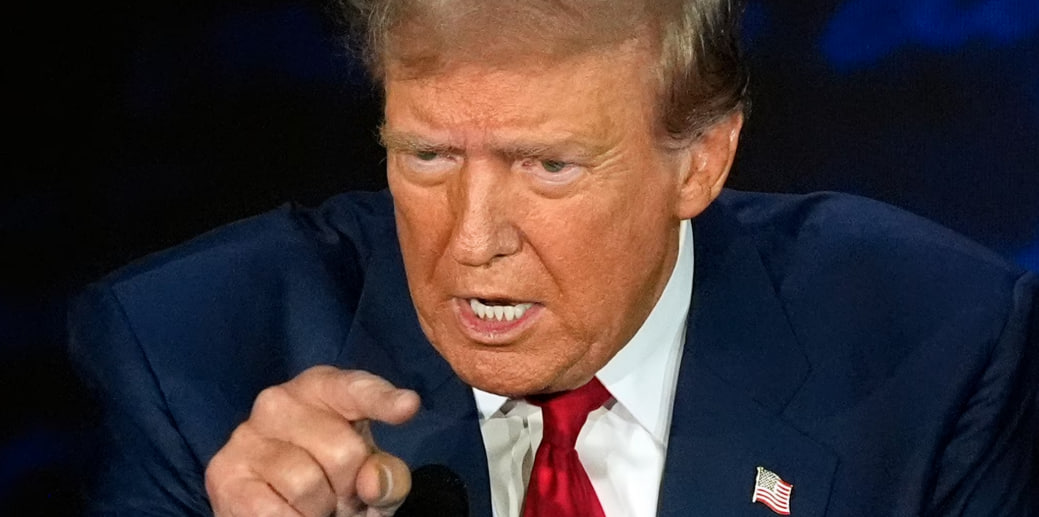Former President Donald Trump is facing debate over his demeanor and delivery in a televised address announcing U.S. military strikes on Iran’s nuclear program. Analysts and social media commentators have described his tone as subdued, contrasting it with the firmer communications of past presidents.
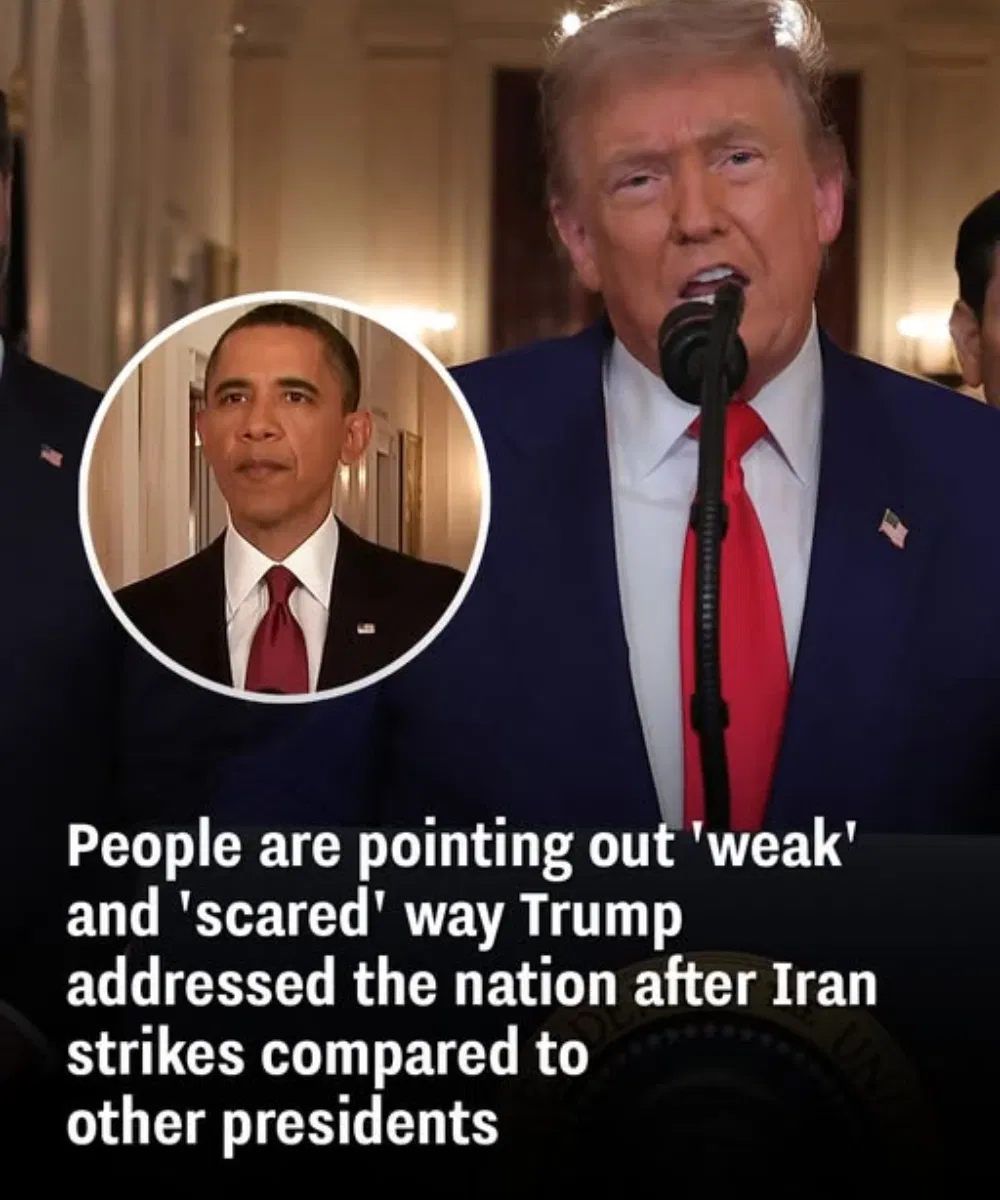
The Airstrikes: What Happened
On June 21, 2025, U.S. forces launched precision strikes targeting Iran’s nuclear facilities at Fordow, Natanz, and Isfahan. Trump, speaking from the White House with Vice President J.D. Vance, Defense Secretary Pete Hegseth, and Secretary of State Marco Rubio standing behind him, described the operation as a “spectacular military success,” asserting that “Iran’s key nuclear enrichment facilities have been completely and totally obliterated.”
Pentagon officials supported him, with Secretary Hegseth calling the operation “historically successful” and crediting the mission’s complexity and precision. U.S. B-2 stealth bombers reportedly dropped Massive Ordnance Penetrator (MOP) bunker-buster bombs to reach buried facilities.
Disputed Claims of “Total Obliteration”
Even so, U.S. intelligence agencies offered more nuanced assessments. A leaked Defense Intelligence Agency (DIA) report stated the strikes severely damaged the facilities but suggested only a delay of a few months to Iran’s nuclear program, rather than full destruction. Israeli intelligence expressed concern that underground uranium stocks might have survived, though centrifuge infrastructure had been disabled.
The White House rejected the DIA findings, labeling them premature and asserting ongoing analyses confirm widespread destruction. CIA Director John Ratcliffe later stated public parts of Iran’s program were “severely damaged” and rebuilding would take “years.”
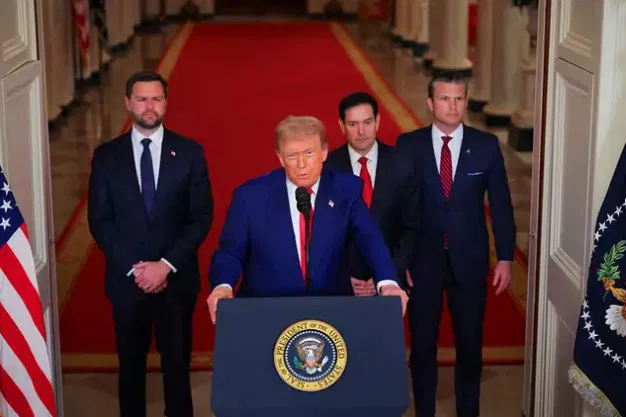
Trump’s Delivery: Calm or Hesitant?
The televised statement sparked immediate reactions online. Many users commented that Trump’s body language appeared restrained, with some saying he seemed “nervous” or “scared.” Comparisons were drawn between his tone and the resolute demeanor of former President Barack Obama during crisis addresses.
Observers noted Trump’s voice had a less assertive cadence than expected for a military announcement, while his senior advisors stood visibly behind him. The contrast highlighted what some described as a “lack of conviction.”
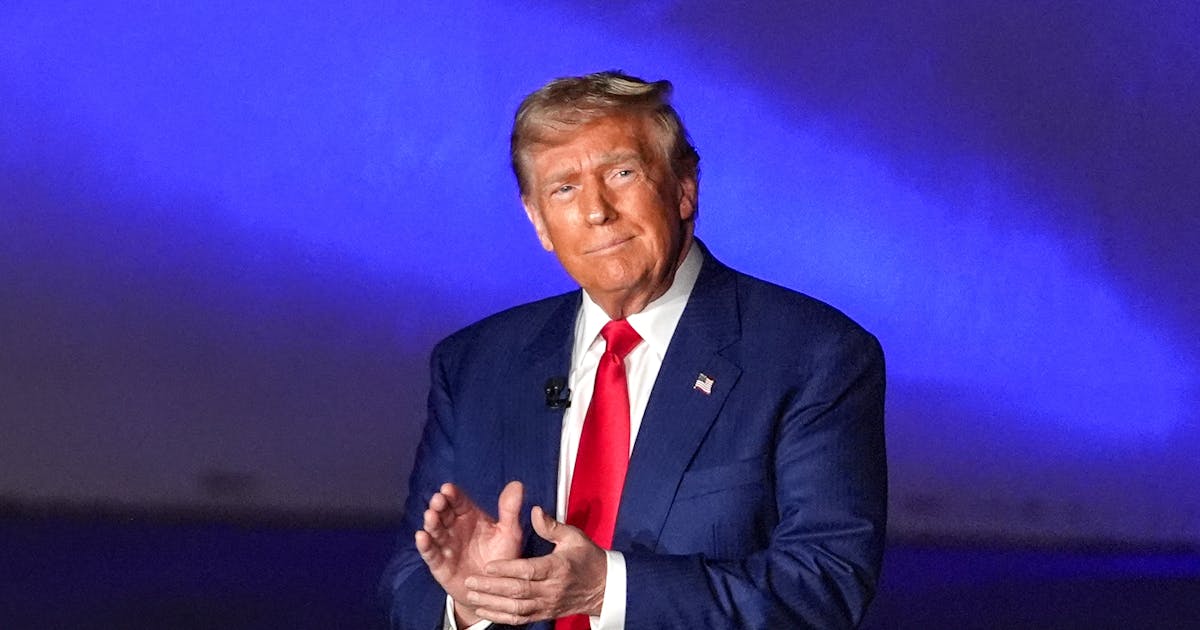
Broader Strategic Context
This airstrike signals a major escalation in U.S. involvement in the Israel-Iran conflict. The coordinated U.S.-Israeli offensive, especially in targeting deeply buried facilities, reflects a more aggressive “Trump Doctrine” that prioritizes decisive action backed by precise force.
However, the leaked DIA report and Israeli intelligence suggest Iran’s nuclear project is “set back by only months,” not destroyed. The White House’s rejection of these findings has triggered debate over politicization of intelligence.
Security Risks and Regional Fallout
Following the strike, Iran launched missile attacks near U.S. military bases in Qatar and Iraq. Israel also intensified its campaign, targeting additional Iranian military infrastructure. Global policy experts warn of rising oil prices and potential threats to domestic security, including possible actions from sleeper cells within the U.S.
Global leaders, including from the UK, cautioned against further escalation and urged a return to diplomacy.

Public Reception and Political Divide
Republican support has fractured. Some key MAGA figures, such as Steve Bannon and Tucker Carlson, initially expressed doubt about further military intervention, citing Trump’s earlier stance against “forever wars.” Later, some, including Carlson, publicly softened their positions.
Meanwhile, Democratic lawmakers questioned the validity of the “obliteration” claim and demanded full intelligence briefings for Congress.
Conclusion: Tone vs. Action
Trump’s announcement drew mixed reactions. While the White House portrayed the mission as a landmark military achievement, intelligence leaks and expert analysis painted a more moderated picture. Observers emphasized that public perception of presidential communication—such as tone and demeanor—carries real political weight, especially when the stakes are high.
Regardless of tone, the airstrikes mark a significant escalation in U.S. and Israeli pressure on Iran’s nuclear infrastructure. As global scrutiny intensifies and regional tensions simmer, the effectiveness and consequences of this operation will be closely watched in the weeks ahead.
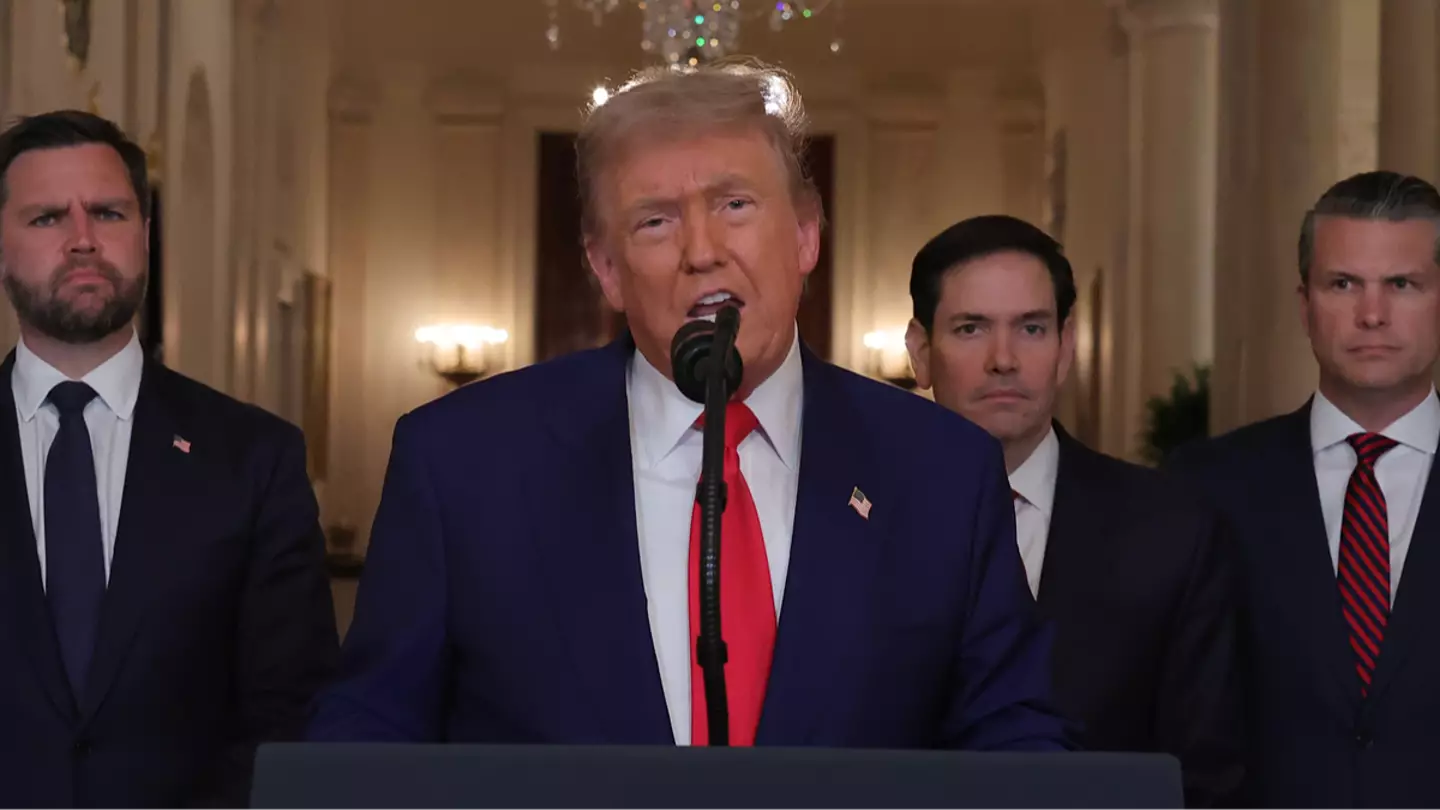
Sources
- Reuters: “Trump says Iran’s key nuclear sites ‘obliterated’ by US airstrikes”
- NPR: “Pentagon chief: Iran strike was a ‘historically successful attack’”
- AP News: “US strikes only set back Iran’s nuclear program by months”
- AP & CBS News: Trump’s national address quotations
- Politico & White House announcements: Context on response and escalation
- Defense Intelligence Agency leak reports (leaked/DIA analysis)
- Israeli intelligence statements – nuclear survival insights
- Wikipedia: Iran–Israel war timeline & GBU‑57 bunker‑buster capabilities
- News outlets covering MAGA reaction and intelligence debate
